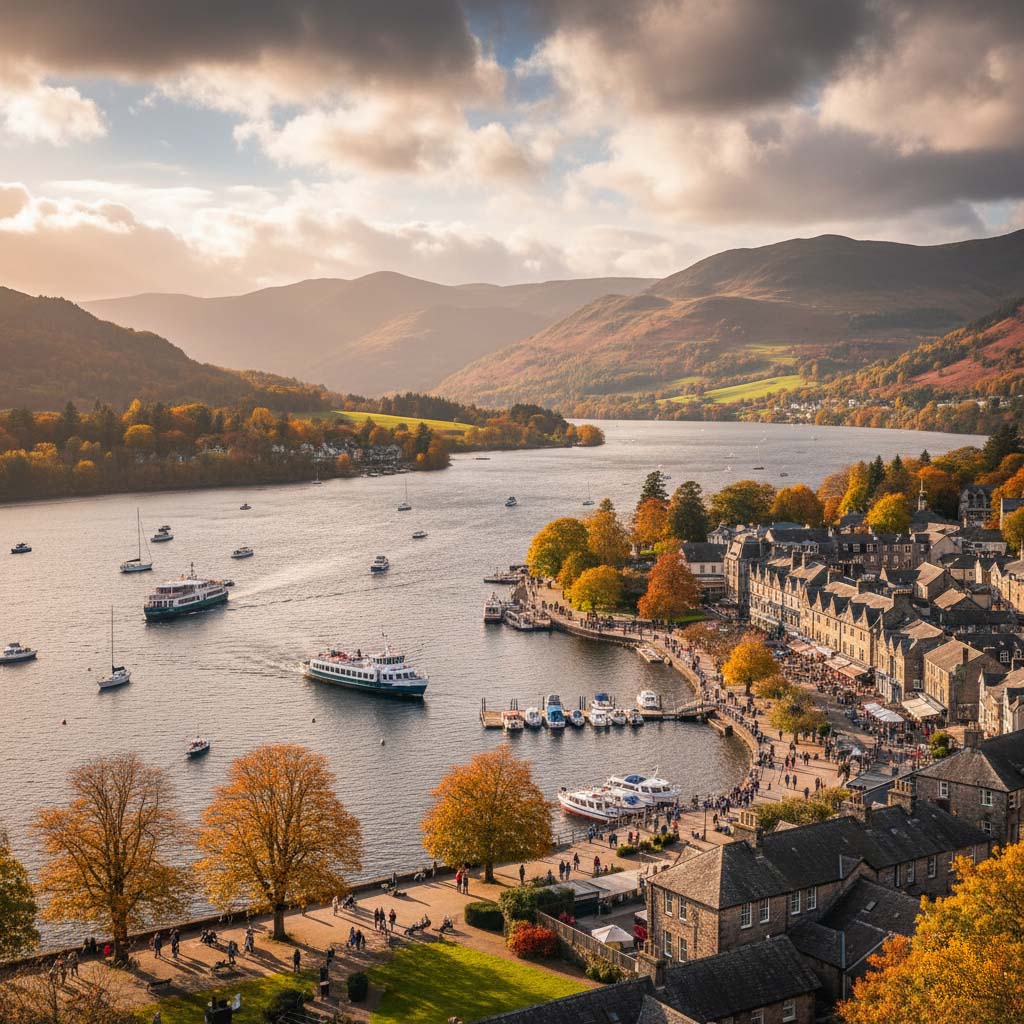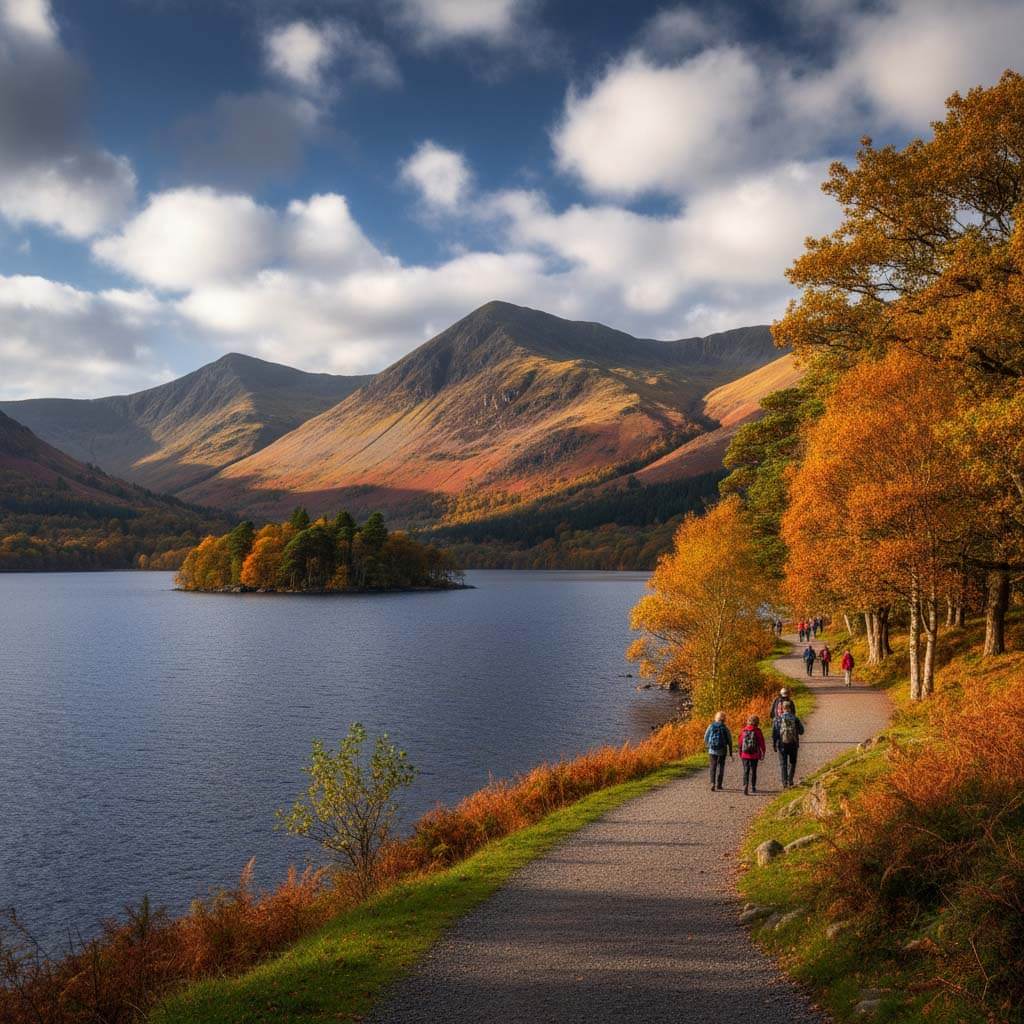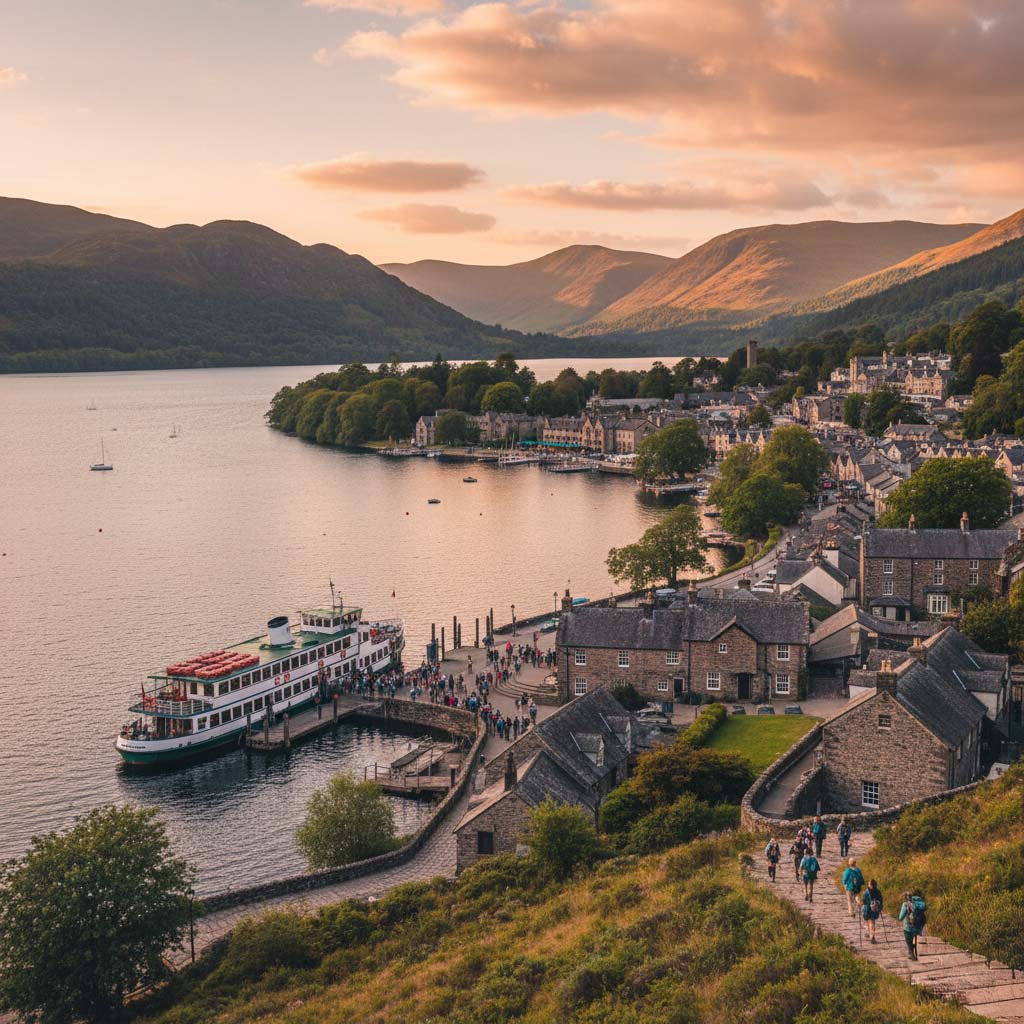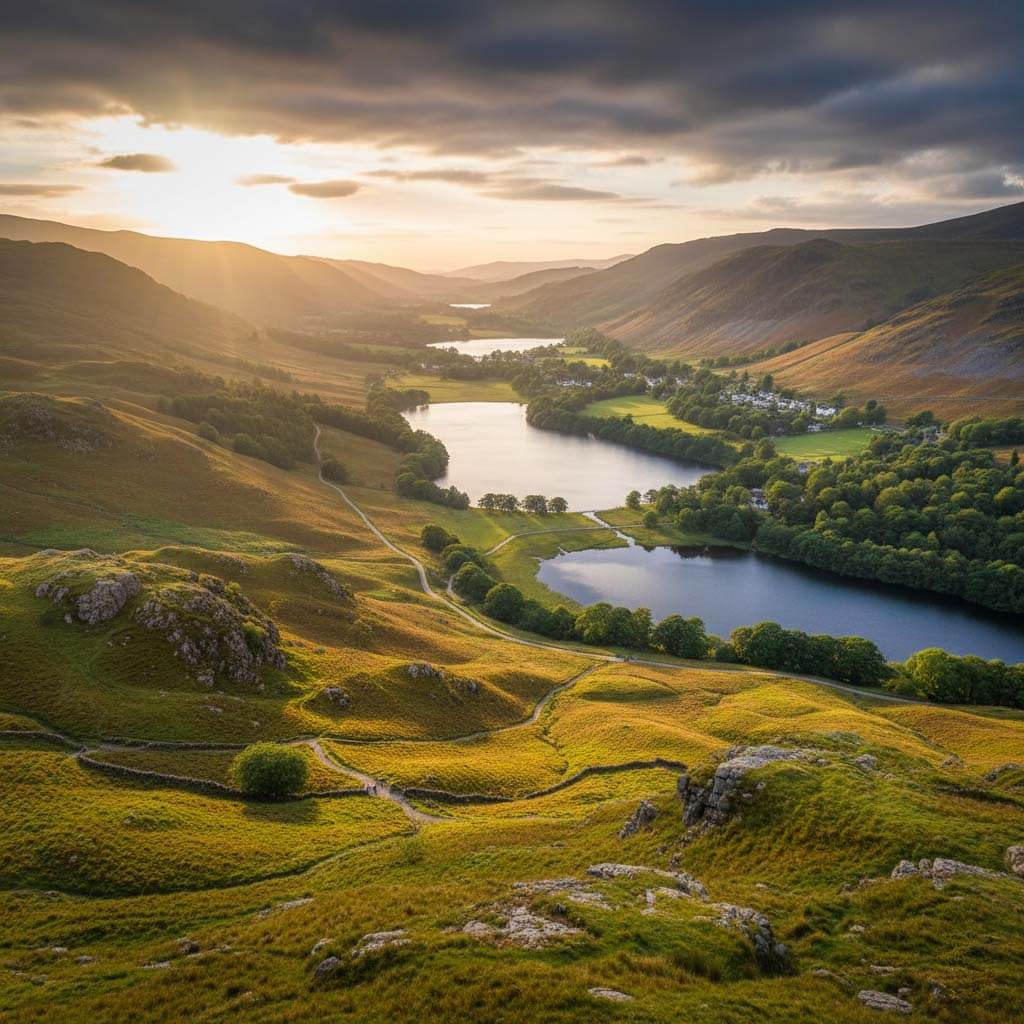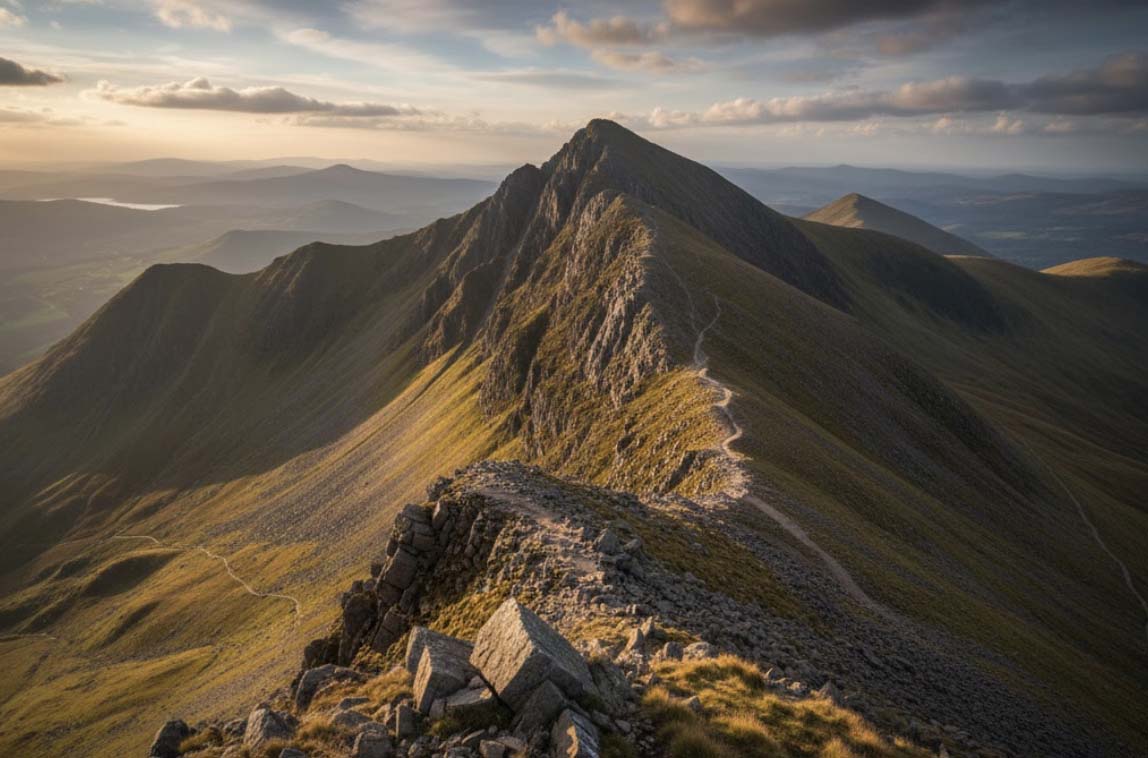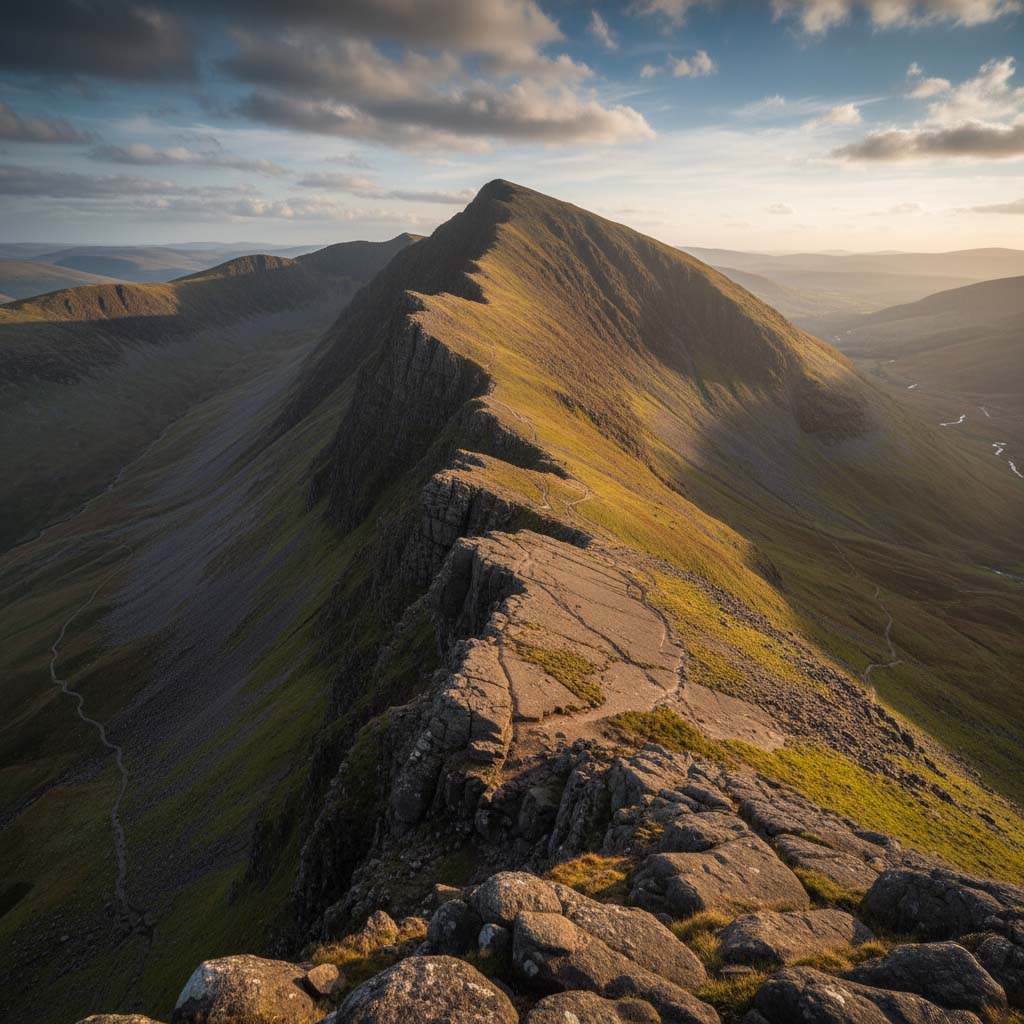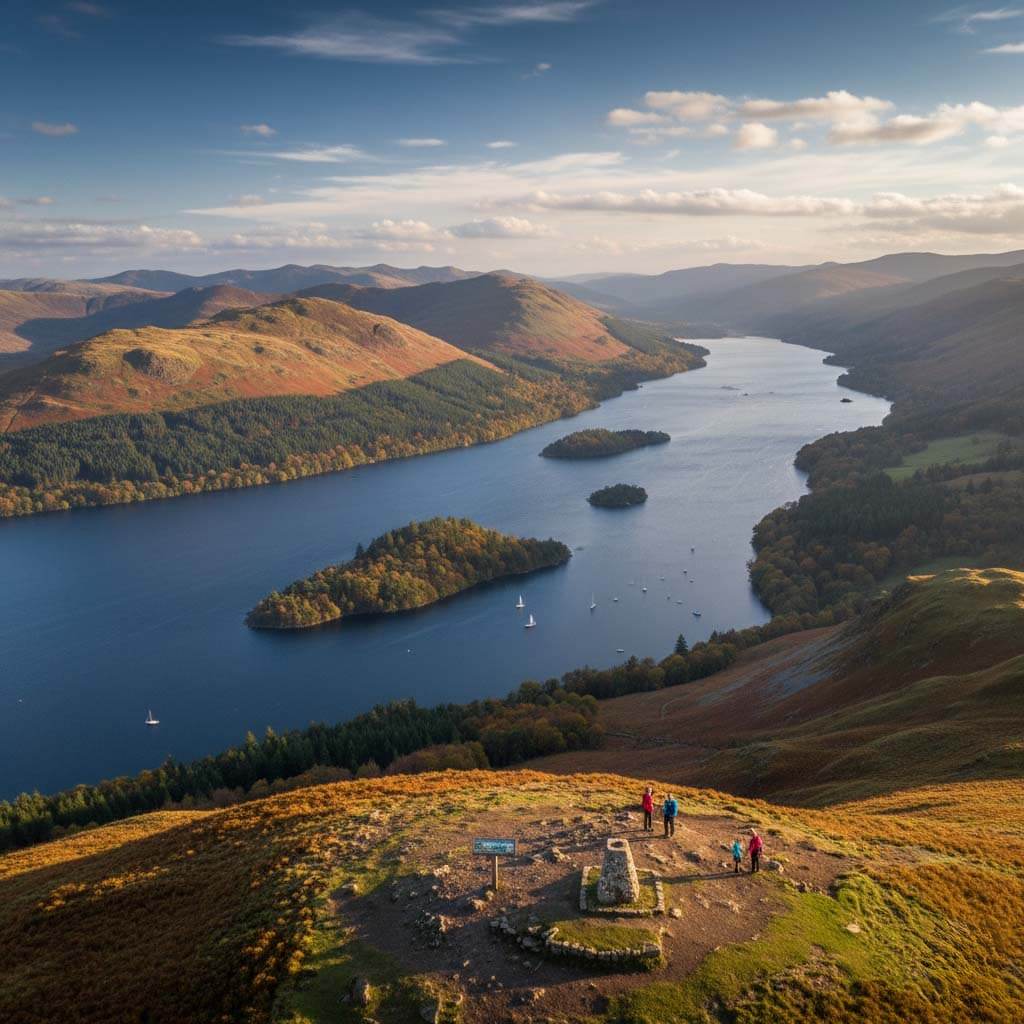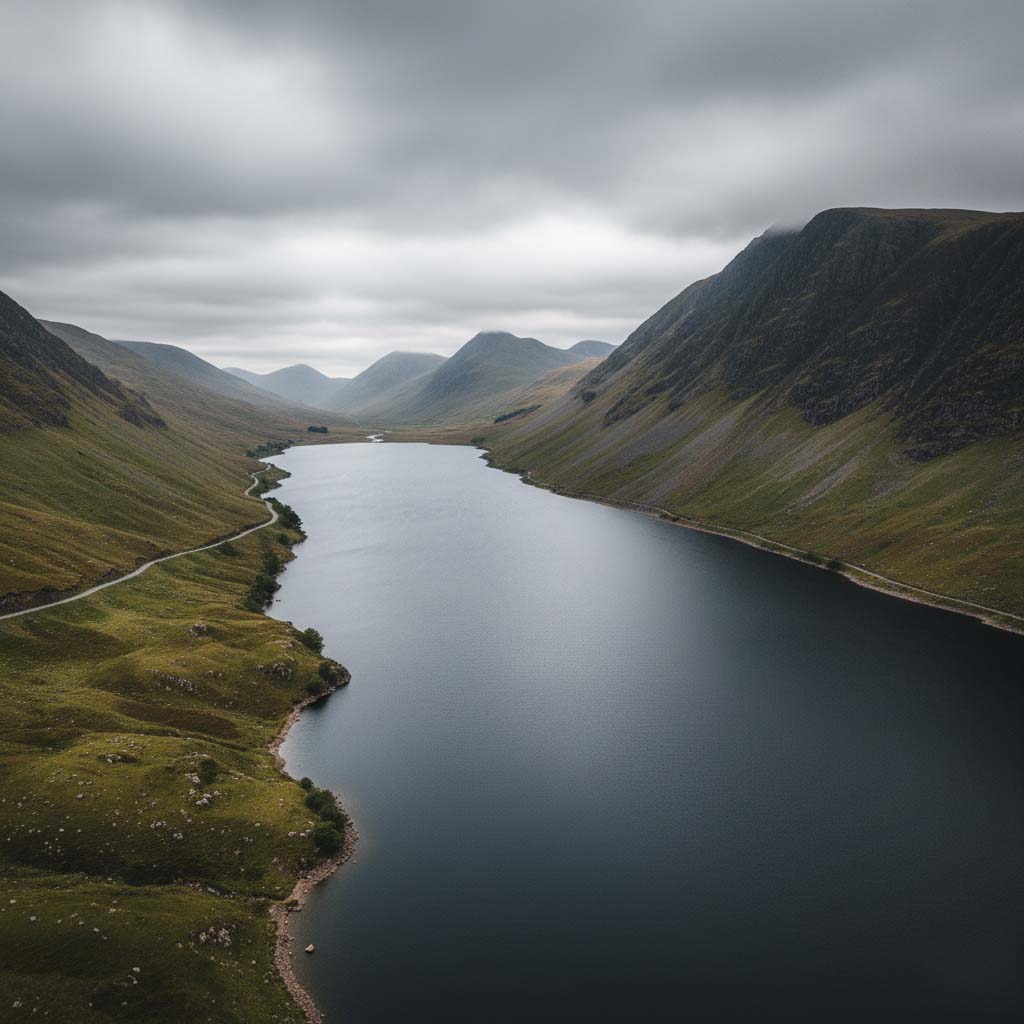🏔️ UNESCO World Heritage Site
Discover The Lake District
Discover England's largest national park and UNESCO World Heritage Site, featuring 16 stunning lakes and the country's highest mountain. Your independent guide to serene landscapes and scenic trails awaits!
Get the app experience.
Welcome to the Lake District
The Lake District is England's largest National Park, covering 2,362 square kilometres of breathtaking mountains, serene lakes, and charming villages in Cumbria, North West England. Inscribed as a UNESCO World Heritage Site in 2017, it welcomes over 17 million visitors annually who come to experience the dramatic landscapes that inspired Romantic poets like William Wordsworth and beloved children's author Beatrix Potter. From England's highest peak, Scafell Pike, to its largest lake, Windermere, this is a land of extraordinary natural beauty.
A Cultural Landscape of Global Significance
In July 2017, the Lake District joined the ranks of the Taj Mahal and the Grand Canyon as a UNESCO World Heritage Site. The inscription recognises not just its spectacular natural beauty, but the unique cultural landscape shaped by over 1,000 years of agro-pastoral farming traditions. The Herdwick sheep, stone-walled fields, and traditional farmsteads combine with the inspiring scenery that sparked the Romantic movement and the birth of global conservation.
Identity
A landscape shaped by people through farming and industry for over 1,000 years
Inspiration
Home to Wordsworth, Ruskin, and Beatrix Potter – inspiring global artistic movements
Conservation
Birthplace of the National Trust and the global landscape conservation movement
Visitor Information
Everything you need to plan your Lake District adventure.
Location & Area
Region: Cumbria, North West England
The Lake District National Park covers 2,362 km² (912 sq mi), making it England's largest. It contains 16 main lakes, over 150 high peaks, and around 40,000 residents across charming towns and villages.
Main towns: Windermere, Keswick, Ambleside, Grasmere, Bowness-on-Windermere, Coniston, Kendal.
Getting Here
By Train: West Coast Main Line to Oxenholme Lake District (London 2.5hrs), then branch line to Windermere. Also Penrith for northern Lakes.
By Bus: Stagecoach 555 connects Windermere, Ambleside, Grasmere & Keswick. All fares capped at £3 per journey.
Tip: Direct trains run from Manchester Airport to Windermere – perfect for international visitors.
The Lakes
Despite the name, there's technically only one official 'lake' – Bassenthwaite Lake. The others are 'meres' (like Windermere) or 'waters' (like Derwentwater).
Largest: Windermere (10.5 miles long). Deepest: Wastwater (74m).
Lake cruises operate on Windermere, Ullswater, Derwentwater, and Coniston Water year-round.
Mountains & Walks
Home to England's highest peak, Scafell Pike (978m), and over 200 'fells' documented by Alfred Wainwright in his famous guidebooks.
Popular walks: Helvellyn via Striding Edge, Catbells, Haystacks, Loughrigg Fell, and the Old Man of Coniston.
Easy walks: Buttermere circular, Tarn Hows, Grasmere to Rydal Water.
Food & Dining
Cumbria has the most Michelin stars outside London! L'Enclume in Cartmel holds three stars – the only 3-star restaurant in northern England.
Local specialities: Cumberland sausage, Herdwick lamb, Grasmere Gingerbread, sticky toffee pudding (invented here!).
Don't miss the country pubs – perfect after a day on the fells.
Literary Heritage
William Wordsworth: Visit Dove Cottage in Grasmere where he wrote 'Daffodils', and Rydal Mount, his family home.
Beatrix Potter: Hill Top farm in Near Sawrey inspired Peter Rabbit and friends. The World of Beatrix Potter is in Bowness.
John Ruskin: Brantwood on Coniston Water – home of the influential Victorian thinker.
Find the Lake District
Located in Cumbria, North West England – around 4-5 hours from London by car or 2.5 hours by train.
Top Things To Do
Let every path, peak, and lake lead you to your next great adventure.
Explore Towns & Villages
Discover the Lake District's most picturesque towns and charming villages.
Iconic Walks & Fells
From gentle lakeside strolls to England's highest peaks – walks for every ability.
Discover the Lakes
Experience the tranquil beauty of the Lake District's iconic waters, where every lake tells its own story.
Getting To & Around the Lake District
Leave the car at home – explore by train, bus, and boat for the best experience.
By Train
West Coast Main Line to Oxenholme Lake District (2.5hrs from London), then branch line to Windermere. Also Penrith for Keswick and northern Lakes.
By Bus
Stagecoach 555 connects all major towns. All bus fares capped at £3 per journey. Open-top tourist buses run in summer from Bowness and Keswick.
By Boat
Windermere Lake Cruises – Cumbria's most popular attraction with 1.35m passengers yearly. Also Ullswater Steamers and Keswick Launch on Derwentwater.
By Car
M6 Motorway runs along the eastern edge. Exit J36 for Windermere, J40 for Penrith/Keswick. Note: narrow roads and limited parking in peak season.
Plan Your Trip
Everything you need for your Lake District getaway.
10 Unmissable Experiences
The best things to do in the Lake District for every type of visitor.
1. Climb Scafell Pike
Summit England's highest mountain (978m) and stand on the rooftop of England. On a clear day, see Scotland, Wales, Ireland and the Isle of Man. Choose from routes via Wasdale Head or Borrowdale.
2. Cruise on Lake Windermere
Board a historic steamer on England's largest lake. Windermere Lake Cruises carries 1.35 million passengers yearly – Cumbria's most popular attraction. Combine with the Lakeside & Haverthwaite Steam Railway.
3. Visit Beatrix Potter's
Step into the world of Peter Rabbit at the 17th-century farmhouse that inspired Beatrix Potter's beloved tales. The National Trust property remains just as she left it – magical for all ages.
4. Explore Wordsworth's Grasmere
Visit Dove Cottage where William Wordsworth wrote 'Daffodils', explore the museum, and pick up legendary Grasmere Gingerbread made to a 170-year-old secret recipe kept in a bank vault.
5. Tackle Striding Edge on Helvellyn
Voted the UK's best hike – an exhilarating scramble along a knife-edge ridge to Helvellyn's summit (950m) is unforgettable. Not for the faint-hearted, but the views are extraordinary.
6. Walk Up Cat bells
The perfect beginner's fell walk near Keswick. Just 451m high but with stunning views over Derwentwater that are out of all proportion to the effort. A Lake District rite of passage.
7. Dine at L'Enclume
Experience Simon Rogan's three-Michelin-star restaurant in Cartmel – the only 3-star outside London and the South East. Farm-to-fork dining at its absolute finest. Book months ahead!
8. Wonder at Castlerigg Stone Circle
One of Britain's earliest and most atmospheric stone circles, dating back to 3000 BC. Set against the dramatic backdrop of Helvellyn and Skiddaw, it's free to visit and utterly magical.
9. Sail on Ullswater Steamers
Cruise England's most beautiful lake on a Victorian steamer operating since 1859. Hop off at Aira Force for the 20-metre waterfall that inspired Wordsworth's daffodils poem.
10. Discover Coniston & the Old Man
Sail on the Victorian Steam Yacht Gondola, visit John Ruskin's Brantwood, and climb the Old Man of Coniston (803m). This is the Lake District where Donald Campbell set water speed records.
Share the Love
Do you love the Lake District? Help promote this stunning region by adding one of our beautiful banners to your website, blog, or social media.
Get Banners & Share

